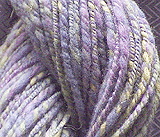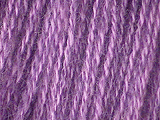WHO WE ARE
About Us
How I Started Handspinning
DROP SPINDLES
*Types of Drop Spindles
How To Make A Drop Spindle
Making Yarn With A Drop Spindle 
SPINNING WHEELS
Styles of Spinning Wheels
Parts Of The Spinning Wheel
*How The Spinning Wheel Works
* Adjusting The Wheel's Tension
*Drive Ratios & Twist
HANDSPINNING TECHNIQUES
Preparing To Spin 
Basic Handspinning Techniques 
Adding On More Fiber 
Spinning Woollen and Worsted Yarn
*Making A Skein With A Niddy Noddy
* "Setting In The Twist" Of Handspun Yarn
*Navajo Plying 
FIBER INFORMATION
Alpaca 
Angora 
Llama 
Mohair 
Silk
Wool 
WOOL PREPARATION
How to Wash Your Fleece
How to Use Hand Carders 
How to Use a Drum Carder
How to Use Dutch Combs
How to Use Mini-Combs
Using a Diz
DYEING INFORMATION
Natural Dyes
Natural Plant Dyeing
Mordants
Natural Dyeing: Helpful Tips
Dyeing with Gaywool Dyes
BUY EQUIPMENT & SUPPLIES
ONLINE PRODUCT CATALOG
Return Policy
Payment Options
Mail-in Order Form
*THE BOOK STORE
WOOLY WABBIT(TM) FARM
Meet the "Wooly Wabbits" 
Angora Rabbit Breeds
How to Care For Your Angora Rabbit
FEEDBACK
REQUEST INFORMATION
RELATED LINKS
*
WORLDWIDE LIST OF
SPINNING GUILDS
|
Spinning Woollen and Worsted Yarn

Woollen and worsted yarn are two types of yarn that can be handspun. Both types
require different fiber preparation on spinning techniques.
 Woollen Yarn
Woollen Yarn
Woollen yarn is spun using a short staple fiber that is prepared by
handcarding and rolled into rolags. A drumcarder can also be used. When spinning the fiber
the long draw or medium draw technique is used to allow the fiber to wrap upon itself while trapping air in the center.
This makes the yarn soft and bouncy. This yarn is best used for garments that will not be subjected
to harsh wear, such as light weight knits. It can also be used for garments that will later go
through a fulling process, such as blankets, coats, and jackets. Fulling is a process that
contracts the yarn in a knitted garment and makes the fabric stronger.
 Worsted Yarn
Worsted Yarn
Worsted yarn is spun using a long staple fiber that is prepared by combing with
dutch combs or a flicker carder, to keep the fibers parallel, and to remove the shorter ones.
When spinning, the worsted technique is used, in which, the fiber is first drafted and then twisted using the thumb and forefinger to
flatten the loose fibers. This makes a stronger yarn that can be used for hard wearing garments,
rugs, blankets, and warp for weaving.
|

